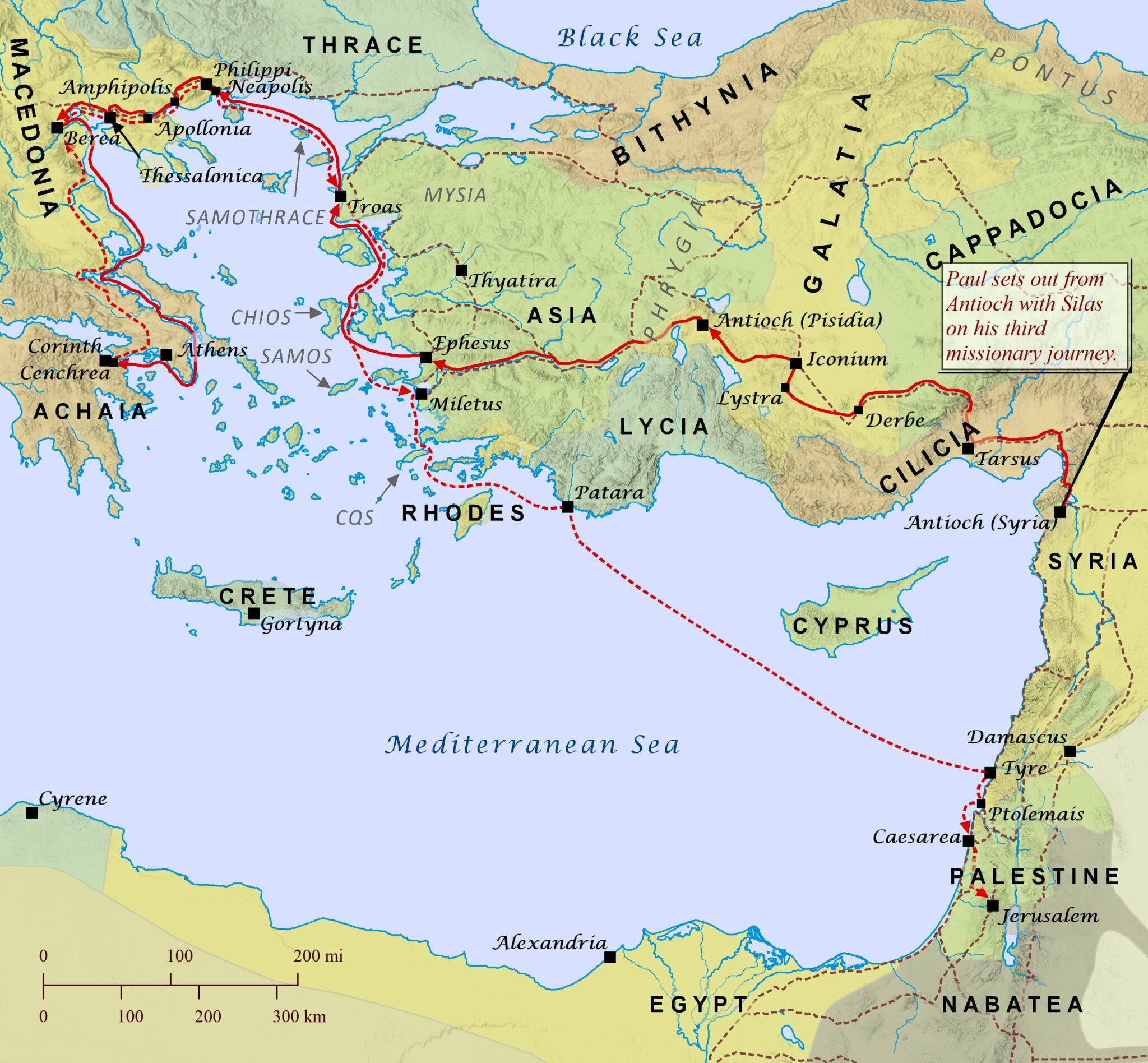Paul requests prayer from the Roman believers and says that if his prayers are answered he will be able to come to them with joy and find rest.
Throughout his letters, Paul recognizes the power and need for prayer many times. He urges his brothers in Rome to pray for him and makes two specific requests in these verses: Now I urge you, brethren, by our Lord Jesus Christ and by the love of the Spirit, to strive together with me in your prayers to God for me (v 30).
First, Paul asks for prayer to God that he would be rescued from those who are disobedient to God’s ways in Judea and second that his service for Jerusalem may prove acceptable to the saints (v 31).
Jerusalem is the capital city of the Jewish people, in the region of Judea. Paul had already experienced an attempt on his life from people in Judea who likely would still want to kill him (Acts 9:23–25). When he goes to Jerusalem in his planned journey (Romans 15:24-25) he will be arrested and will eventually appeal to Caesar because he knows he cannot get a fair trial.
Paul’s rescue from those who are disobedient to God’s ways in Jerusalem will come, ironically, from the pagan Romans. It will be revealed to Paul that he will be bound in Jerusalem and eventually die, but Paul goes into the city regardless. He counts it a privilege to die for the way of the cross (Acts 21:11-13).
It is interesting that Paul asks the Roman believers to strive together with me in your prayers. The word translated to English as strive is derived from the Greek word “agonizomai” from which we get our English word “agony.” It was used to describe vigorous athletic competition or fighting. In Ephesians 6:13-18, Paul uses the analogy of a Roman centurion to describe the spiritual warfare he urges believers to enter into each day, including through prayer. There is a spiritual dimension in which we can make a difference, and the Bible encourages us to participate in it as though it were a battle to be fought and won.
Paul believes that if he is rescued and executes an acceptable service to the faithful in Jerusalem, that he may come to you in joy by the will of God and find refreshing rest in your company (v 32).
Paul is expressing great confidence that the Roman believers will receive his message and reject the slander of the competing Jewish “authorities.” Paul is confident that they will choose a perspective that they are fully accepted by God as children through faith in Jesus, apart from works (Romans 8:17a).
His former co-teachers of the gospel, Priscilla and Aquila, are there in Rome combatting these competing Jewish “authorities” (Romans 16:3; Acts 18:2, 18, 26). Paul’s confidence is probably partly founded in his old friends now having this epistle to help their efforts to teach the truth of living by faith, not by the Law.
But he is also confident they will understand that as God’s people, they have been granted a great inheritance to possess, through obedience and enduring rejection from the world (the same sufferings of Christ—Romans 8:17b).
Paul makes plans throughout this chapter but notes here that he will visit the believers in Rome by the will of God, clarifying that he was committed to living out what God desires for his life. He concludes with a blessing, now the God of peace be with you all. Amen (v 33).
The Jewish idea of peace was (and is) “shalom.” It is a holistic concept of peace, where all things work together in harmony with God’s design. We could think of righteousness as our contribution to and participation in living consistently with God’s design, and peace (“shalom”) as the state of being when all is working according to God’s plan. It is Paul’s wish that the Romans would experience God’s presence (be with you all). Paul chooses to elevate the characteristic of God as the God of peace, apparently to wish upon the Romans that they would fit into His plan, experience His goodness, and escape the divisions and strife that attend those who would lead them falsely.
Biblical Text
30 Now I urge you, brethren, by our Lord Jesus Christ and by the love of the Spirit, to strive together with me in your prayers to God for me, 31 that I may be rescued from those who are disobedient in Judea, and that my service for Jerusalem may prove acceptable to the saints; 32 so that I may come to you in joy by the will of God and find refreshing rest in your company. 33 Now the God of peace be with you all. Amen.
Check out our other commentaries:
-
Jonah 4:1-4 meaning
Jonah becomes angry because the LORD spares the Ninevites. He asks the LORD to take his life. The LORD responds to Jonah with a question...... -
Romans 5:6-8 meaning
Paul is again emphasizing that we are made righteous in God’s sight apart from anything we do. Christ did not die for us because we...... -
Exodus 13:11-16 meaning
Verses 11 – 16 contain the LORD’s instructions dealing with the firstborn....... -
Ecclesiastes 6:10-12 meaning
Apart from God, any attempt to explain the meaning of existence is futile....... -
Daniel 2:44-45 meaning
After the fourth kingdom, God will set up His eternal kingdom.......



